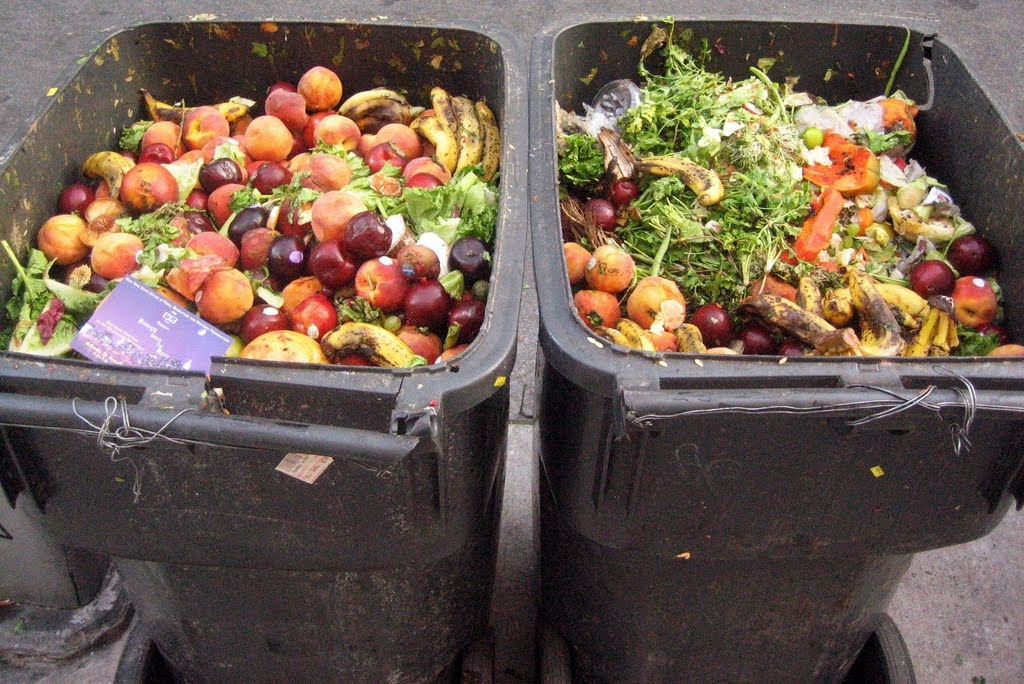NEW YORK—The key to New York City saving $350 million per year will be kick-started by students across a hundred schools sorting out the garbage.
On September 8, the city launched Zero Waste Schools, Mayor Bill de Blasio’s five-year pilot program to determine practices with the ultimate goal of “sending zero waste to landfills by 2030.”
New York City has partnered with the Department of Education, the Department of Sanitation and an environmental nonprofit – GrowNYC in a $1.1 million plan to ensure the program’s success and ability to provide resources.
Despite the collaborative effort to prevent the state’s budget from being thrown into the garbage, there are no imminent arrangements to allocate additional funds back into the 100 schools, causing scattered participation from teachers and faculty.
Zero Waste Schools is part of a greater citywide initiative to eliminate the transportation of trash by 2030 due to New York City landfills reaching capacity.
“I look at schools as microcosms of communities,” said Thaddeus Copeland, Deputy Director of Sustainability. “Schools are an important part of this plan because they are the cultivation of habits when you’re young – recycling being one of those. Nearly 90 percent of what the schools throw out is recyclable or compostable. A lot of it is food waste, paper, milk cartons, or plastic. There’s a potential to really lower the amount of waste going to landfills.”
According to the New York City Department of Sanitation Curbside Recycling and Refuse Costs, since 2008, the rate spent on exporting garbage to other states and countries increases approximately $6.6 million each year.
“Schools participating in the first phase of the program are chosen specifically based on their location along two major Department of Sanitation waste collection routes,” said Carmen Fariña, Chancellor of the Department of Education.
According to Copeland, the main component of ensuring the program’s success relies on communication of each of the departments.
“Before the academic year began, the Department of Education and GrowNYC had a collaborative training with custodians, food managers and principals,” Copeland said.
All participating schools are provided with a volunteer-based sustainability coordinator who formulates a Green Team and drafts recycling and energy reduction plans for the school.
“The aspect of liaising between the infrastructures of multiple schools is the program’s greatest hurdle,” said Apoorva Mathur, Outreach Coordinator for the Recycling Champions Program of GrowNYC.
“I am assigned to six buildings total,” said Mathur. “But some of my buildings have two schools inside and some have three. It’s difficult to coordinate on site because each have a different principals, custodial staff and student regents,” she added.
The program is reliant on student and faculty engagement. Participation from certain grades and schools tend to be lower due to varying priorities from kindergarten through high school.
“We’ve gotten mixed reviews,” said Mathur. “From K-9th grade students really love learning about sustainability and how to use correct recycling bins, but priorities shift as high school students start preparing for college.”
Problems have also surfaced from curriculum integration from teachers feeling pressured to devote time to incorporate extra work.
“It’s not an opt-out program,” Mathur said. “Schools have to take part if selected, that’s why we come in and educate every stakeholder. In the beginning there was a lot of push back from custodial saying ‘now we have to pick up trash from three bins instead of one?’ It’s always hard in the beginning of the school year, new teachers have curriculum to establish before recycling is a priority.”
Zero Waste Schools provides sustainability coordinators to assist teachers with course integration, but the success of the program comes from educators and community members who are passionate about sustainability.
“A lot of administration and teachers don’t have enough time or interest to participate in these non-incentivized programs,” said Lorial Crowder, 40, a parent volunteer of the Recycling Champions Program. “Sometimes parents have to step in and get involved instead of having things half-implemented.”
No concrete figures have been attributed to a reward system for schools, but the Department of Sanitation, Recycling Champions Program and Department of Education are working on incentive structures and developing a Zero Waste Schools website (www.nyc.gov/zws) slated to launch in November 2016 to streamline awards for participating involvement from teachers, students and all things relating to sustainability in schools.
“There’s no dollar figure we can attribute, but we plan to create an online community that will provide a resources and a revamped recognition program,” said Meredith McDermott, Director of Sustainability of the Department of Education.
“We know the power of incentives to schools, we know it’ll help drive involvement and participation, but dangling the carrot of money isn’t always ideal. We’re trying to coordinate action now that the program’s officially launched.”






